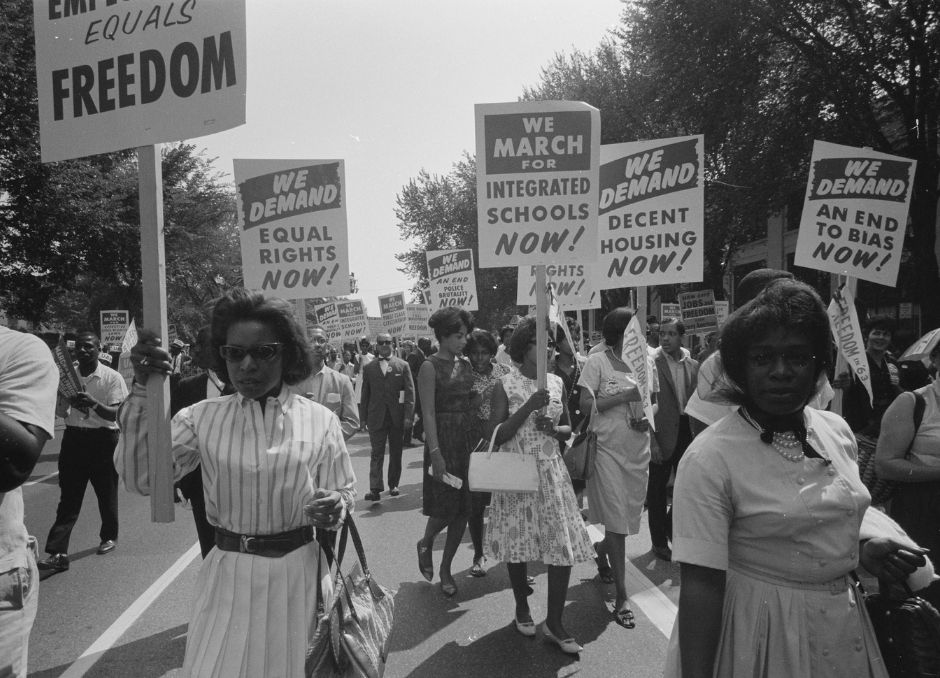APS: History Repeats Itself
- Anjy Cramer

- Sep 2, 2025
- 3 min read
Updated: Sep 3, 2025

Speech given to Arlington Public Schools (APS) School Board Meeting Public Comment Period, Thursday, August 21, 2025 (51:41). Note: it has been edited for clarity.
In the 1950s, APS found itself mired in a constitutional crisis. They had to navigate divergent Federal (Brown v Board of Education) and State Laws (Virginia's "Massive Resistance") regarding segregation in schools. In Virginia, any division that enacted school desegregation would lose local control of their education system; their public schools defunded and officially closed (1). Vouchers would then be given to attend private schools.

With the backdrop of McCarthyism and a rising segregationist movement, those who spoke out were harassed via phone (2), mail (3), and the occasional cross burning in their yards. According to oral histories from the 1980s, in the 1950s school board members faced recrimination, accused of being Communists, and one almost lost his Federal Government day job due to these accusations. Outside actors regularly disrupted school meetings (4).
Some board members brought in the culture wars. Helen Lane loved pulling books off of APS shelves. Ms. Lane even forced the board to vote on eliminating the school lunch program (5) from the budget.
Robert Peck, dismayed at APS' sex ed program (6), bypassed the school board and took the matter to the state. The Sex Ed program, developed by experts, vetted through a citizen's advisory committee and approved by the Board... was gutted and suspended.
The Arlington County School Board did eventually approve a very gradual desegregation plan (7). The Virginia legislature almost immediately voted to disband their elected public school board (a right that no one got back until 1993).
But let's be clear: despite Lane and Peck, APS didn't desegregate due to benevolence. They did it due to bond obligations (8) and building capacity concerns (9). Black parents' advocacy (and lawsuits) brought us to 1959.
Despite some people in the room, APS is on the right side of history today. Stay here.
A social studies teacher in another state sent me this quote today:
"You don't have the right to feel safe–you have a right to BE safe, which is not the same. Fascism is obsessed with perceived danger coming from every vulnerable/marginalized population and its only answer is to eradicate them. If you feel unsafe when you are not, you should ask why." They/Them Might Be Giants
The last time I stood at this podium, I said I would stand behind you until it was necessary to stand in front. I stand by my words.
Leave them kids alone!

References: Thank you to John Stanton and Heather Crocetto for assistance in locating the source documents linked herein. See links below to view the sources.
1956 Media Coverage of Harassment of NAACP Lawsuit Plaintiffs
1958 Threatening Letter from Irene Compton Comparing Desegregation to Communism
1957 APS Public Input demanding Elimination of Public School Lunches
1954 Newspaper Articles covering New Censorship Committee to Review Library Books
1956 APS Desegregation Policy, Including Caveats for Parents who Object to Desegregation
1961 Article Covering James Stockard’s Efforts to Integrate APS
All of the Arlington County Library's Oral History Programs used in this speech can be found at the Charlie Clark Center for Local History, Central Library, including the following that were used to develop this public input:
Oral History transcript, James Stockard, April 23, 1984, pg 28-30.
Oral History transcript, Bernard Joy, December 6, 1983, pg 29-30
Oral History transcript, James Stockard, April 23, 1984, pg 15-16.
Oral History transcript, Elizabeth Campbell, September 3, 1984, pg 28-29.
Oral History, Robert Peck, September 3, 1984, pg 29-31.



Comments